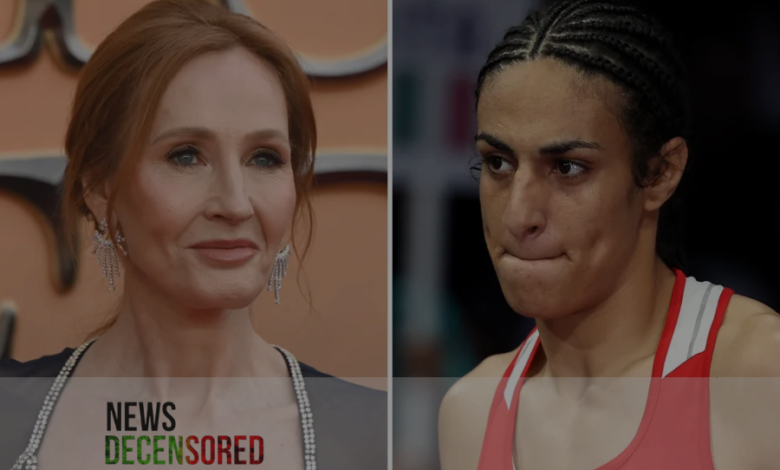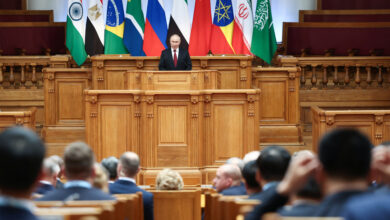Fans Hit Back at JK Rowling’s ‘Attack’ on Imane Khelif’s Gender Amid Olympics Row

JK Rowling called Olympian Imane Khelif a ‘man beating a woman in public for entertainment’ – before furious fans bit back at the author over her ‘transphobic’ slur.
Algerian boxer Imane Khelif took on Italy’s Angela Carini in yesterday evening’s women’s boxing – but Carini quit to “save my life” just 46 seconds in, saying she had been struck that she “couldn’t breathe.” Her emotional reaction has brought about the result—clear condemnation from such quarters, including Reem Alsalem, the UN special rapporteur on violence against women and girls, some MPs, champion boxer Nicola Adams, and JK Rowling.
Imane Khelif is an athlete now at the very center of much of the debate about gender and sport. The buzz regarding her participation in the Olympics has raised her from obscurity. Her gender presentation is an issue of public contention due to the nature of competitive sports; thus, Khelif finds herself heavily subject to criticism and under constant public scrutiny. Performance and participation have become the issues surrounding the athlete, notably because of questions of fairness and equity in women’s sports.
J.K. Rowling has been known for quite some time to be the author behind the famous “Harry Potter” series and is very vocal on issues regarding gender discourse in modern times, always framing it under the garb of saving women’s rights and spaces. Her comments, apparently directed at Khelif and interpreted by many to be a direct critique of his gender identity, where she called the prominent activist “dangerous,” led to massive fanbase backlash from not only Khelif but general gender rights supporters.
Many have said Rowling’s comments were an “attack” on Khelif, just part of a more significant trend where celebrities use the now-toxic mix of culture and social media to give an opinion on such sensitive issues as gender. The author faced backlash for comments that prominent critics said derailed the story and identity of Khelif, being tagged transphobic and insensitive. Rowling’s entering the fray, for a few, has provided a high-profile lending of favor and increased the heat and scrutiny on Khelif’s case.
Fan reactions, however, have been vocal and immediate. Khelif supporters quickly posted their condemnation of Rowling’s comments, which they see as damaging and actively excluding. Many claimed that what follows from Rowling’s argument is then speech that is disrespectful of the personal experience and human rights of athletes like Khelif and tends more toward enforcing a narrow view of gender that overall demonstrates a lack of respect for human diversity. The fans’ responses indicated a more significant concern over how public figures speak regarding gender identity and how that relates to persons who directly stake in those debates.
This struggle throws ample light on the more extensive debate in basic societal discourse concerning matters of gender and sport, such as the inclusion of transgender athletes in particular competitive events. Arguments in favor of such measurements state that, at the very least, persons should be allowed to compete in line with their gender identity, which carries weight in respect and affirmation. The most raised criticism concerns fairness and the effect this step could have on other female athletes, resulting in complicated and charged discussions.
Many followers have supported Khelif and, as they wished, have claimed a need for respectful, informed discourse regarding gender concerns over the controversy. They advocate that public figures, particularly Rowling, should involve themselves in the discussion with consideration for the feelings and approaches of all the people involved. The faction that supports Khelif and the idea of gender inclusivity demands much more nuance: respect for the rights and dignity of persons regarding their gender identity.




